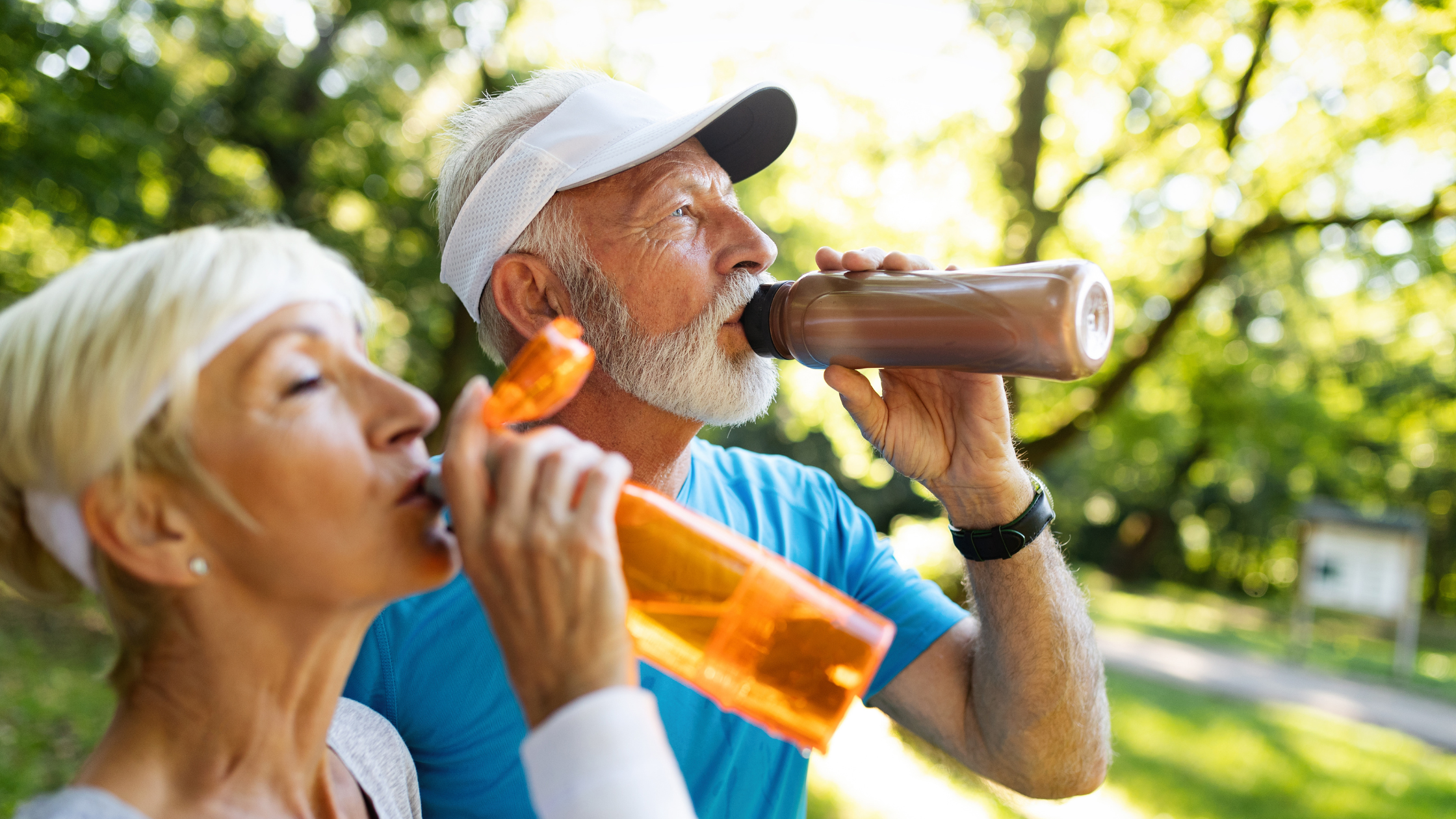With Arizona breaking records with a 19 day streak of temperatures reaching above 110 degrees, and with temperatures persisting well above 100 degrees throughout much of Texas, Florida and Southern California, it is safe to say this summer has been a scorcher.
In these sweltering conditions, even as the summer is winding down, keeping cool and staying hydrated seems like an almost insurmountable task. This is particularly true for seniors who are at a higher risk of dehydration due to physiological changes that occur with age. To keep seniors safe in these harsh weather conditions, it is important to understand why dehydration is more common in seniors, the ensuing consequences, and the ways we can prevent it, with the help of professional care and revolutionary technology.
Why Dehydration is a Growing Concern Among the Elderly
Our adult bodies can lose almost 2.5 liters of water daily through regular activities, which is why it’s often recommended to drink at least 2 liters of water every day. Unfortunately, many of us only hydrate when we feel thirsty, a response that weakens with age, leading to the older population not realizing their state of dehydration.
Moreover, as we grow older, our bodies’ water reserves dwindle, and our kidney function decreases. Kidney function is crucial for water regulation. Aging also often brings along health conditions and medications that can exacerbate water loss, thereby increasing the risk of dehydration.
The Serious Consequences of Dehydration in the Elderly
While dehydration impacts everyone, the elderly are more vulnerable to specific complications, such as constipation, electrolyte imbalances, kidney problems, and balance issues. More severe dehydration can lead to decreased brain function, elevated heart rate, and potentially, serious medical emergencies like heart attacks.
In extreme cases, life-threatening complications can arise, such as hypovolemic shock, urinary and kidney problems, seizures, and heat-related issues.
Detecting Dehydration: Symptoms and Signs
Recognizing the symptoms of dehydration in the elderly is crucial. These can include fatigue, sunken eyes, decreased urination, muscle weakness and cramps, headaches, dizziness, and confusion. More severe symptoms that warrant immediate medical attention include difficulties with movement, persistent diarrhea or vomiting, delirium, and seizures.
The Role of Technology in Early Detection of Dehydration
With today’s technological advances, we have powerful tools to assist in identifying dehydration early on. One such groundbreaking technology is Sensi – our 24/7 virtual AI solution. By continuously providing analytics on an individual’s behavior, this technology can detect subtle changes in everyday habits that might signify dehydration.
For instance, increased lethargy, confusion, or trouble with movement or walking can all be early indications of dehydration. By alerting agencies, caregivers or family members when these signs are identified, intervention can occur earlier, potentially preventing severe consequences.
Strategies for Preventing Dehydration
- Hydration Schedule: Encourage a hydration schedule that includes drinking fluids at regular intervals throughout the day. This can be especially beneficial for seniors who may not feel thirsty often.
- Set Reminders: Utilize technology to set regular reminders for drinking water throughout the day. There are many apps available that can help track daily water intake and remind seniors when it’s time to have a hydrating drink.
- Soup and Broth: Incorporating more soups and broths into the diet can increase fluid intake. These are also an excellent way to get added nutrients.
- Fluids with electrolytes: There are many adult electrolyte drinks on the market such as Adult Pedialyte, Electrolit, Liquid I.V. powder, sports drinks like Gatorade as well as electrolyte drinks made by most drug store brands. Encouraging seniors to replenish their electrolytes can avoid dehydration.
- Popsicles and Jell-O: Fun and tasty options like homemade popsicles or Jell-O can be hydrating and more appealing to some seniors. They can be made with fruit juice or infusions of their favorite flavors.
- Drink with Medication: Encourage seniors to drink a full glass of water with their medications, unless advised otherwise by a healthcare professional. This not only helps with swallowing the medication but also increases water intake.
- Proper Clothing: Wear appropriate clothing for the weather. Light, breathable fabrics can help reduce excessive sweating on hot days, preventing unnecessary water loss.
- Monitor Sweat and Urine: Keeping an eye on how much one sweats or the color of one’s urine can provide useful indicators of hydration levels. Dark urine or a lack of sweat when it’s hot can be signs of dehydration.
- Gradual Hydration After Exercise: If they have been active, encourage seniors to rehydrate gradually, not all at once. This gives the body a better chance to absorb the fluids.
- Avoid Alcohol: While everyone may enjoy a good cocktail, alcohol dehydrates the body – no matter our age. However, this is compounded with age.
Remember, each person is unique, so you might need to experiment with different strategies to find what works best. Always consult with a healthcare professional if you have concerns about hydration and health.
The Need for Professional Help
The gravity of dehydration should never be downplayed. In our busy lives, continuous monitoring of an aging loved one’s hydration levels might not always be feasible. That’s where professional in-home caregivers and technologies like our 24/7 virtual support solution come in.
These trained professionals can ensure that seniors remain well-hydrated, and with innovative 24/7 analytics, signs of dehydration can be identified early on. This blend of human care and Sensi’s AI technology offers peace of mind, knowing that our elderly loved ones are being well cared for even when we cannot be there.
